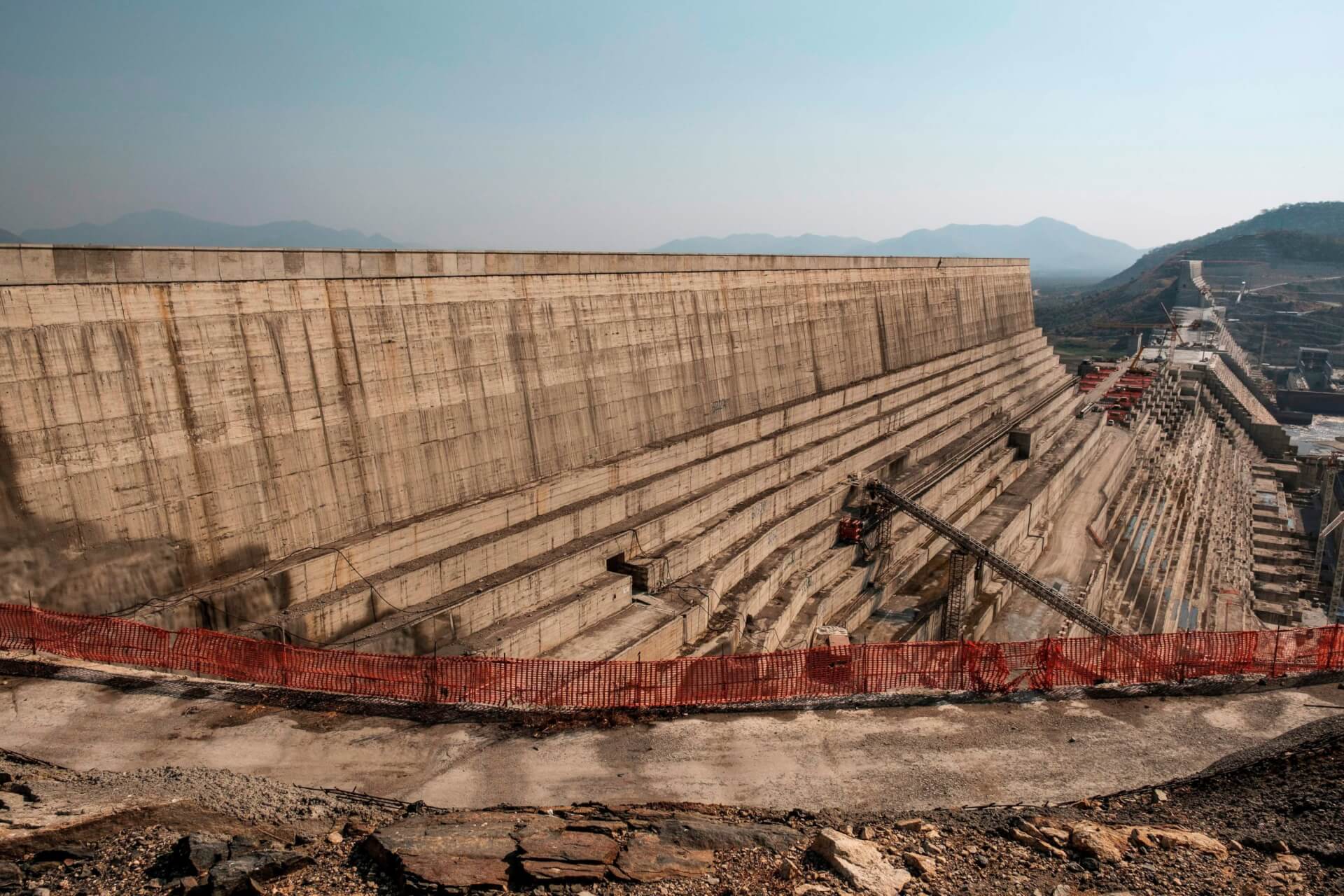Saudi Arabia, Bahrain, and Oman, in separate statements on Tuesday, expressed their support for Egypt and Sudan over their Grand Ethiopian Renaissance Dam (GERD) dispute with Ethiopia. The declarations come at a time when tensions between Cairo, Khartoum, and Addis Ababa over the multi-billion-dollar project have been escalating.
According to a report by Al Ahram, Saudi Arabia said that it supported the rights of both Egypt and Sudan to protect their shares of the Nile’s waters. The kingdom also stressed that “water security is part and parcel of the Arab region’s security” and expressed its hope of resolving the longstanding dispute by serving the interests of all parties involved. In the same report, Oman’s Foreign Ministry was quoted as saying that it prefers “dispute resolution efforts through dialogue and negotiations to ensure regional security,” while supporting the claims of Egypt and Sudan.
The Kingdom of Bahrain released a statement expressing solidarity with Egypt “in preserving its national and water security, protecting the interests of its people and its legitimate right to life, as well as its sincere efforts to achieve regional peace and stability.” The text also reaffirmed Manama’s support “for the efforts made to solve the crisis of filling and operating the Renaissance Dam in a way that preserves the water and economic rights of the countries of the Nile River mouth in accordance with international laws.”
Last year, Ethiopia started filling the GERD’s reservoir, despite Egypt’s protests that unilateral actions regarding the dam should not be taken without a legally binding treaty that sets the terms for equitable allocation of the Nile’s waters. The dispute centres around how much water Ethiopia will release downstream if a multi-year drought occurs, and how the countries would settle any future conflicts on the matter. Earlier this year, Addis Ababa said that the second phase of the reservoir filling would continue without an agreement with other states, further straining ties between the countries.
The Nile is an international watercourse that has historically been linked mainly to Egypt. It provides nearly 96% of the dry-desert country’s renewable freshwater, and since the country receives abysmally low levels of rainfall, almost 95% of its total population lives within 12 miles of the river, using its resources for agriculture, industrial production, and sewage treatment. But over the past few decades, demands from other riparian states to access the river’s waters and utilise its resources have been perceived as a major national security threat by Egypt. The main issue remains to be that of the GERD, which would provide water and power to millions of Ethiopians, who currently face severe deprivation of these resources.
The Blue Nile, a major tributary of the Nile, originates in Ethiopia’s highlands and provides the river with 85% of its total water flow. Put simply, it provides an overwhelming majority of the water that Egypt’s existence depends on. However, Ethiopia has not been allowed to access Egypt’s water resources due to a myriad of political, economic, and geostrategic reasons, even though it contributes such an overwhelming majority of Egypt’s total available water. The GERD is meant to solve Ethiopia’s water shortages and generate a new electricity source by which it can export power.
In its riparian region, the GERD could majorly benefit Sudan, since it would provide cheap electricity and reduce river flooding. However, Khartoum fears that, depending on the volume of water discharged daily, the large operation could threaten its own dams, which are far smaller and run downstream. Meanwhile, Egypt’s position on reducing flow stems from fears that the dam will decrease its supply of Nile water and that any diversion would lead to a significant amount of evaporation and water loss. Therefore, its paramount interest lies in preserving the current status quo.
Speaking about the continued deadlock in GERD negotiations, Egyptian President Abdel Fattah El-Sisi said on Tuesday that no one could “take a drop of water from Egypt,” warning that it could lead to “inconceivable instability” in the region.” El-Sisi also said that he favoured dialogue over any escalation, and stressed that Cairo was seeking a “win-win” situation for all sides involved in the conflict.
Egypt, Sudan Receive Backing of Gulf Countries Over GERD
Saudi Arabia, Bahrain and Oman's statements expressing solidarity with Egypt and Sudan come at a time when tensions with Ethiopia over the dam have been escalating.
April 1, 2021

SOURCE: AFP
